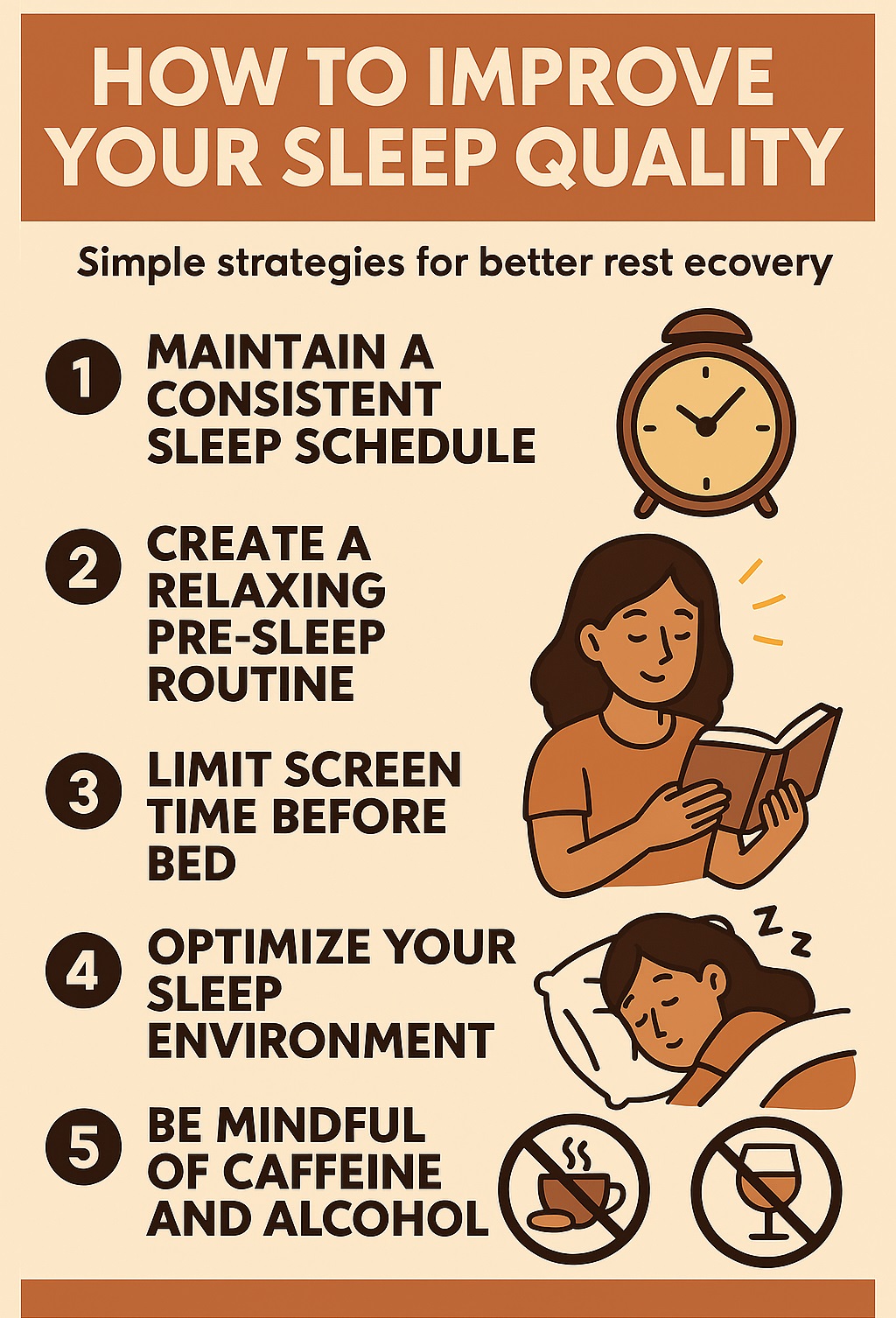How to Improve Your Sleep Quality – Simple Strategies for Better Rest and Recovery

Sleep is the foundation of good health, yet many of us struggle to achieve the restorative rest our bodies and minds need. Improving sleep quality isn’t about a miracle remedy—it’s about adopting simple, sustainable strategies that create a calming nightly routine and support a healthy lifestyle.
Establish a Consistent Sleep Routine
A regular sleep schedule is one of the strongest predictors of restorative sleep. Commit to going to bed and waking up at the same time every day—even on weekends. This consistency helps regulate your body’s internal clock, making it easier to fall asleep and wake up naturally. Establishing a pre-bedtime ritual, such as reading a book, practicing gentle stretches, or engaging in a few minutes of meditation, signals your body that it’s time to wind down for the night.
Create an Ideal Sleep Environment
Your bedroom should be a sanctuary designed for rest. Aim for a cool, dark, and quiet room. Consider investing in blackout curtains to block out city lights and using a white noise machine or a fan to mask disruptive noises. The quality of your mattress and pillows is equally important—choose bedding that supports your preferred sleep position. A clutter-free and soothing atmosphere reduces distractions and fosters a sense of calm, helping you transition smoothly from wakefulness to sleep.
Limit Screen Time and Stimuli Before Bed
In today’s digital age, screens are ubiquitous, yet their blue light emissions can hinder melatonin production, the hormone responsible for regulating sleep. Try to limit screen exposure at least an hour before bedtime. Instead, opt for activities that relax your mind—such as listening to soft music, engaging in quiet conversation, or practicing a relaxation exercise. Some people find that using blue light filters or wearing blue light-blocking glasses in the evening also helps mitigate these effects.
Mindfulness and Relaxation Techniques
Incorporating mindfulness practices into your evening routine can significantly improve sleep quality. Techniques like deep breathing, progressive muscle relaxation, or even guided imagery can help lower stress levels and create a peaceful mental state. If intrusive thoughts keep you awake, consider keeping a journal by your bedside—writing down your thoughts and worries can provide a mental release and prepare your brain for sleep.
Lifestyle Habits that Promote Restful Sleep
Consider your daytime habits as they impact your nighttime rest. Regular physical activity can contribute to a better night’s sleep; however, aim to finish exercising a few hours before bed to prevent stimulation. Monitor caffeine and alcohol consumption, as both can interfere with your ability to fall and stay asleep. A balanced diet rich in whole foods also supports overall health, which in turn can lead to improved sleep quality.
Embrace Small Changes for Big Results
Improving sleep quality is not a one-size-fits-all journey—it’s about finding what works best for you. Experiment with these suggestions and observe the difference in your sleep patterns. Over time, even small changes can result in significant improvements in energy levels, mood, and mental clarity throughout the day. Remember that good sleep is a cornerstone of a vibrant and healthy life.



0 Comments
No comments yet, be the first to comment